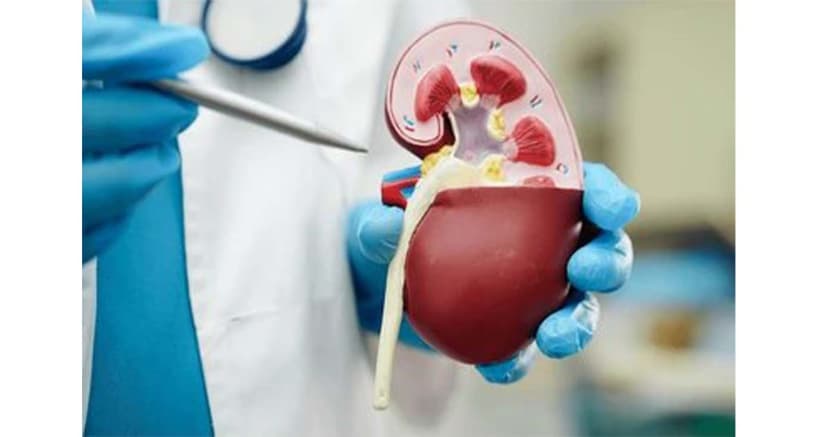Understanding Childhood Obesity and How to Prevent It
By:
Apex Hospitals
27-04-2024

Childhood obesity is a pressing issue that affects millions of children worldwide. It is characterized by an excessive amount of body fat in children and poses serious health risks. According to the World Health Organization, the prevalence of childhood obesity has increased dramatically in recent years, making it a global epidemic. This article aims to shed light on the causes, impact, and management of childhood obesity while also providing strategies for prevention.
What is childhood obesity?
Childhood obesity is a multifaceted, long-term condition that arises when a child exceeds a healthy weight for their age, height, and sex assigned at birth.
In medical terms, childhood obesity is defined by having a body mass index (BMI) at or above the 95th percentile for age and sex among children aged two years and older.
It's important to note that BMI calculations for children differ from those for adults. Children's BMI is specific to their age and sex, as their body compositions naturally evolve with age. Healthcare professionals utilize specialized growth charts to determine a healthy BMI range for children.
Prevalence and Impact of Childhood Obesity
Childhood obesity has reached alarming levels in many countries, including India. Recent studies have shown that approximately one in every five children in India is overweight or obese. The consequences of childhood obesity are far-reaching and can have both immediate and long-term effects on a child's health. Obese children are more likely to develop chronic conditions such as type 2 diabetes, high blood pressure, and heart disease. Additionally, they may experience psychological and social issues, such as low self-esteem and stigmatization.
Causes and Risk Factors of Childhood Obesity
1. Diet: Poor dietary habits, such as excessive high-calorie, low-nutrient foods and sugary beverages, contribute significantly to childhood obesity.
2. Sedentary Lifestyle: Lack of physical activity and excessive screen time, including television, video games, and computer use, are major factors in the development of obesity among children.
3. Genetics: Genetic factors can predispose some children to obesity by influencing their metabolism, appetite regulation, and fat storage.
4. Environmental Factors: Environmental influences, such as easy access to unhealthy foods, limited availability of nutritious options, and neighbourhood safety affecting outdoor play, can contribute to obesity.
5. Socioeconomic Status: Children from low-income families are at a higher risk of obesity due to limited access to healthy foods, fewer recreational facilities, and fewer opportunities for physical activity.
6. Family Dynamics: Family behaviours and attitudes towards diet and physical activity play a crucial role in shaping children's habits. Poor role modelling, unhealthy family eating patterns, and lack of encouragement for physical activity can contribute to childhood obesity.
7. Psychological Factors: Emotional factors, such as stress, boredom, and depression, may lead to overeating or unhealthy eating habits, contributing to weight gain in children.
8. Medical Conditions: Certain medical conditions, such as hormonal imbalances, genetic syndromes, and medications, can increase the risk of obesity in children.
Understanding the causes and risk factors of childhood obesity is essential for developing effective prevention and intervention strategies to address this public health concern.
Health Complications Associated with Childhood Obesity
Children with obesity face an increased risk of various health issues, including:
1. High Blood Pressure
2. High Cholesterol (Dyslipidaemia)
3. Insulin Resistance, Prediabetes, and Type 2 Diabetes
4. Non-Alcoholic Fatty Liver Disease
Other potential complications may include:
1. Asthma
2. Obstructive Sleep Apnoea
3. Polycystic Ovarian Syndrome (PCOS)
4. Depression
5. Joint Pain
6. Blount’s Disease
7. Heart Disease
Moreover, children with obesity may also encounter:
1. Bullying
2. Social Isolation
3. Low Self-Esteem
It's important to note that childhood obesity can persist into adulthood. Paediatricians typically recommend screenings for these complications and provide treatment plans as needed.
Childhood Obesity Management and Prevention Strategies
Managing and preventing childhood obesity requires a multi-faceted approach that involves various stakeholders, including parents, healthcare professionals, schools, and communities. Encouraging healthy eating habits and regular physical activity are crucial components of any obesity prevention strategy. Parents and caregivers play a pivotal role in shaping a child's lifestyle choices by providing nutritious meals, limiting the consumption of sugary drinks and snacks, and promoting active play. Additionally, schools and communities can implement policies that promote healthy eating and physical activity, such as providing nutritious school meals and creating safe spaces for outdoor recreation.
The Role of Parents and Caregivers in Preventing Childhood Obesity
Parents and caregivers have a unique responsibility in preventing childhood obesity. They can influence their children's behaviours and attitudes toward food and physical activity by serving as positive role models. Parents must create a supportive environment fostering healthy eating habits and regular exercise. This can be achieved by involving children in meal planning and preparation, encouraging family meals, and limiting screen time. Parents should also promote positive body image and avoid using food as a reward or punishment.
The Importance of a Healthy Diet and Physical Activity for Children
A healthy diet and regular physical activity are essential for children's growth, development, and overall well-being. A balanced diet that includes a variety of fruits, vegetables, whole grains, lean proteins, and low-fat dairy products provides the necessary nutrients for optimal growth. Limiting the consumption of sugary drinks, processed foods, and snacks high in saturated fats and added sugars is essential. Physical activity helps children maintain a healthy weight, build strong bones and muscles, and improve cardiovascular fitness. Encouraging children to engage in at least 60 minutes of moderate to vigorous physical activity daily is crucial for their health.
Addressing Childhood Obesity in Schools and Communities
Schools and communities play a vital role in addressing childhood obesity. They can create environments that support healthy behaviors and provide opportunities for physical activity. Schools should offer nutritious meals, promote physical education classes, and incorporate health education into the curriculum. They can also establish policies that limit the availability of unhealthy foods and beverages on campus. Communities can provide safe spaces for children to engage in physical activity, such as parks, playgrounds, and sports facilities. Collaboration between schools, healthcare providers, and community organizations is key to implementing effective obesity prevention programs.
Conclusion
Childhood obesity is a complex and urgent problem that requires immediate attention. By understanding the causes, impact, and prevention strategies of childhood obesity, we can work towards creating a healthier future for our children. Parents, caregivers, schools, healthcare professionals, and communities must come together and act. By promoting healthy eating habits, encouraging physical activity, and creating supportive environments, we can prevent and manage childhood obesity. Let us embrace our collective responsibility and prioritize the health and well-being of our children.
Take part in the campaign against childhood obesity by supporting policies that encourage healthy eating and physical activity in your community. Lead by example by embracing a healthy lifestyle yourself. Together, we can positively impact our children's lives and pave the way for a healthier future for generations to come. In this endeavour, Apex Hospitals stands beside you. Book an appointment with our paediatricians and dietitians to join the movement towards healthier living.
FAQs
Related Articles
Connect with Us
Health in a Snap,
Just One App.
Know more



































































































